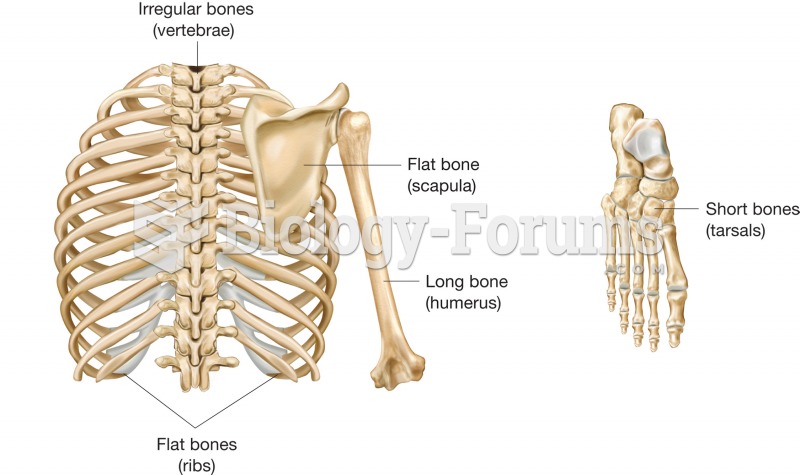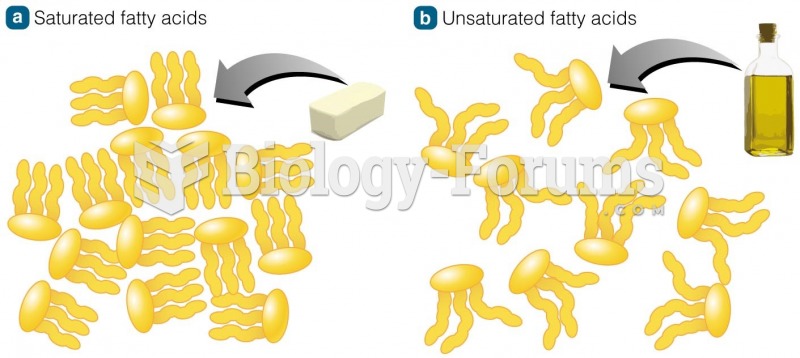|
|
|
Glaucoma is a leading cause of blindness. As of yet, there is no cure. Everyone is at risk, and there may be no warning signs. It is six to eight times more common in African Americans than in whites. The best and most effective way to detect glaucoma is to receive a dilated eye examination.
Bacteria have flourished on the earth for over three billion years. They were the first life forms on the planet.
Drying your hands with a paper towel will reduce the bacterial count on your hands by 45–60%.
The first monoclonal antibodies were made exclusively from mouse cells. Some are now fully human, which means they are likely to be safer and may be more effective than older monoclonal antibodies.
There are approximately 3 million unintended pregnancies in the United States each year.







